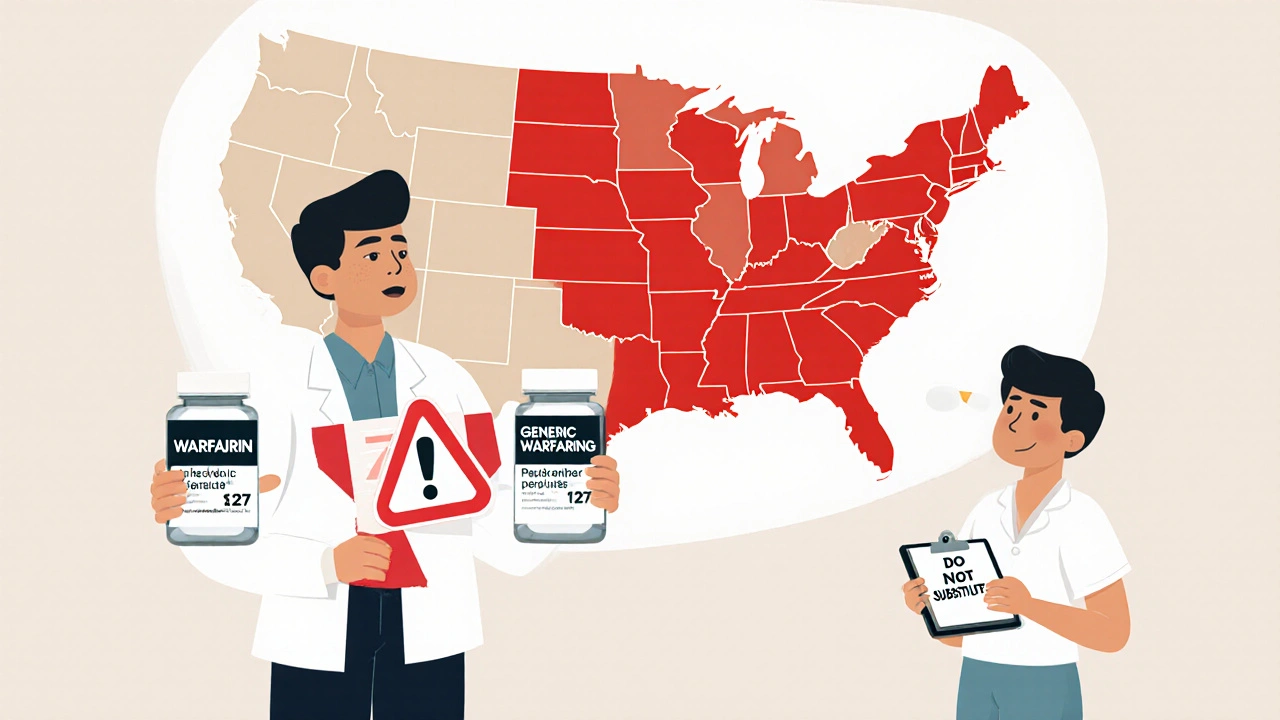NTI Substitution Laws: What You Need to Know About Generic Drug Switches
When a pharmacy swaps your brand-name drug for a generic, it’s usually safe—but not always. NTI substitution laws, regulations that limit how and when pharmacies can substitute drugs with a narrow therapeutic index. These rules exist because for certain medications, even a 5% difference in absorption can mean the difference between effective treatment and serious harm. Drugs like lamotrigine, an antiseizure medication used to control epilepsy, warfarin, a blood thinner that requires precise dosing, and carbamazepine, another epilepsy drug with tight safety margins fall into this high-risk category. The FDA calls these narrow therapeutic index drugs, and they’re the reason some states ban automatic generic substitution without a doctor’s approval.
Why does this matter to you? If you take one of these drugs and your pharmacy switches you to a different generic version—maybe because it’s cheaper or your insurance pushed it—you might not notice any change. But your blood levels could shift enough to trigger seizures, dangerous bleeding, or even toxicity. Studies show patients on these meds are more likely to end up in the hospital after an unplanned generic switch. And here’s the catch: many patients don’t even know their drug is on the NTI list. Pharmacists aren’t always required to tell you about the switch, and doctors may not flag it unless you ask. That’s why understanding NTI substitution laws isn’t just about policy—it’s about your daily safety.
These laws vary by state. Some require prescriber authorization before any substitution. Others allow it only if the generic is AB-rated and the patient consents. A few have no restrictions at all. The key is to know your drug’s category and ask your pharmacist: "Is this a narrow therapeutic index medication?" If yes, request that your prescription be marked "dispense as written" or "do not substitute." Keep a list of your NTI drugs handy—your doctor, pharmacist, and even emergency responders need to know. And if you’ve ever had a seizure, a bleed, or a sudden side effect after a generic switch, that’s not coincidence. It’s a signal.
Below, you’ll find real-world examples of how generic switches have impacted patients, what to watch for, and how to push back when your safety is at stake. From epilepsy meds to blood thinners, these aren’t theoretical risks—they’re everyday concerns for thousands of people. You don’t need to accept a swap just because it’s cheaper. You have the right to know, to ask, and to say no.
Twenty-seven states have special laws restricting generic substitution for narrow therapeutic index (NTI) drugs like warfarin and levothyroxine. Learn which states block swaps, why they do it, and what you should do if you take one of these critical medications.
Nov, 20 2025

